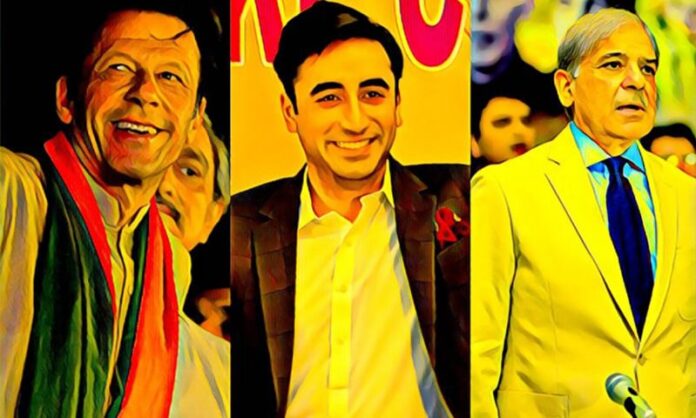As important as it is, the public remains peripheral in the Pakistani game of politics, argues Tariq Qureshi.
In underdeveloped nations, 4 groups combine to make a ‘ruling power’: politicians, the establishment, the judiciary, and the public. (Large businesses have hands in politicians, establishments, and the public).
The public is irrelevant when the other 3 are in balance. Politicians and establishments, when in balance, use the judiciary for legalization ceremonies. When the establishment is in disagreement with politicians, there is potential for non-democratic balance creation for governance and some politicians play ball as we see during military rules. When politicians go into conflict internally, then they seek over 50% strength from the public, and that is when the establishment and judiciary try to act to bring the system back into balance.
That is why the creation of a large number of political parties is used to ‘divide and rule the public’ using religious, ethnic, and ideological divides. That’s where the absence of a clear majority brings in these 1-6 party members to play havoc with blackmails sitting in government.
The public becomes a potent force only when it is under (a) direct financial and/or (b) security and (c) survival crisis. We have been witnessing a continuous unending stalemate of 11-12 months that has been broken by one of the power sources (the Judiciary) taking a decision (holding elections in 90 days) to break the jinx to reset the system.
However, this time one political party has broken the standard balance by seeking help from the public as Zulfiqar Ali Bhutto and Mujeeb ur Rehman in East Pakistan did 53 years ago to bring ‘establishment’ and ‘judiciary’ to act. The breakaway of East Pakistan, too, was a case where politicians and public force overran the dominance of the establishment and Judiciary because of distance, external interference, and divided establishment (revolt).
As a new balance was achieved, the public expectations of the new normal are exceptionally high (financial, security, and survival), leading to major mistakes by politicians and the establishment to control the balance which includes drastic undemocratic measures, and we saw Mujeeb or ZAB doing the same – which led to another imbalance and rest is history.
So, coming back to contemporary times, when the new balance comes in the next 90-270 days, the new government will be operating on exceptionally soft slippery grounds. The worst is the opposition politicians who do everything to get back into power enticing the establishment.




